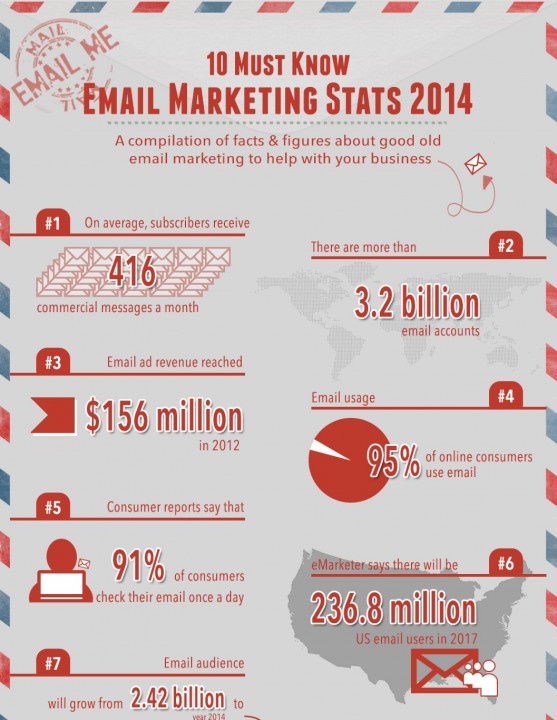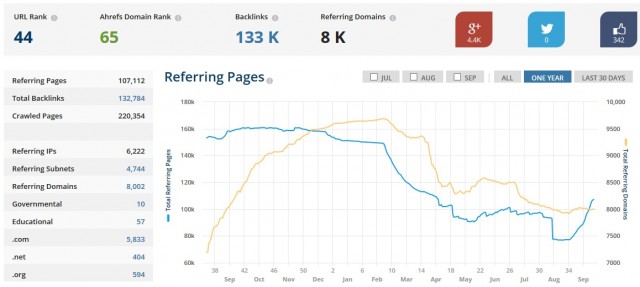This article has been contributed by Gary Dek.
Startups, perhaps more than other types of companies, require great web design and a strong marketing campaign to launch their products/services.

However, coming up with a cost-effective marketing strategy when you are a startup and low on cash can be challenging, especially if you are attempting to use traditional mediums such as television, print, or even online advertising. Fortunately, you don’t have to be an internet or technology startup to start a blog and market your new venture.
Why Startups Need To Blog
1. A blog can help establish your startup as an authority in your niche.
2. A blog is an effective way to generate exposure for your brand and traffic to your site.
3. Blogging develops a corporate personality and increases interaction with potential customers.
4. Blogging and content marketing offer the benefit of long-term, sustainable growth and results.
Now that you know the benefits of blogging, it’s time to discuss important blogging tips to jump start your startup.
1. Plan your content.

Startups of any industry are focused on creating innovative solutions to social or business problems. Similarly, a startup’s blog should reflect that creativity and uniqueness – generic content found on any other website will not satisfy market expectations or build the buzz needed for launch.
Before you actually start your blog, determine what stories you want to share. Ask yourself and/or your co-founders these questions:
- Who is your target demographic? What are their concerns or problems?
- What is the purpose of your blog? How will you serve their needs?
- What types of blog post ideas are best for our target audience? How-to’s, tutorials, infographics, interviews, etc.?
- What will be the tone of your writing? Will you maintain a professional demeanor or try to provide your company with an online personality?
- What kinds of company-related updates are you going to share, and how often?
- What other topics do you want to cover, how are they related to your startup, and how can they benefit your startup?
- Who will be updating and maintaining the blog and how consistently?
Additionally, make sure that your content is well-written in terms of readability and grammar. Failing in these areas will take away from the credibility of your blog.
2. Create comprehensive resources.
Aside from publishing regular content, startups should focus on developing free, in-depth resources. Resource pages are inherently useful, attracting visitors who are looking for solid, practical information. They can also be a means of getting sign-ups for newsletters/email lists, generating potential leads, or even demonstrating expertise in a subject matter. Sites like Mail Chimp & UX Pin do a great job of this.
Furthermore, great resource pages published before the release of new products or services can be used to build buzz and online exposure for new offerings, increasing revenue potential from the get-go.
What to write about?
Resource pages should be comprehensive guides about your industry as well as your products/services. Some tips on creating the best online resource:
- Produce evergreen content that can be expanded over time to incorporate new industry developments. This will give you the benefit of long-term search engine traffic as well as flexibility as the competitive landscape changes.
- Make your resource page user-friendly and engaging. Your content shouldn’t read like a whitepaper. No one likes a boring read, so aside from text, utilize images, graphics, video, and even slideshows. Be sure to use headings and sub-headings (i.e. H2 and H3 tags).
- Throw in a freebie. If you’ve got people reading your resource pages, chances are that they really do want to know more about your startup and how it can help improve their lives or businesses. Entice them to keep in touch by offering freebies for sign-ups. Provide downloadable PDFs, cheat sheets, checklists or eBooks in exchange for their email address.
Overall, valuable guides and resources will attract incoming traffic and encourage readers to buy your products/services with confidence.
3. Know your competition.
As we mentioned, a startup must be focused on innovation or offer some type of unique added value; otherwise, what differentiates you from the competition? An extension of this concept can be to research competing business blogs.
Two great online tools are SEMRush.com (see special offer below) and BuzzSumo.com. SEMRush allows you to discover the keywords any website is ranking for and BuzzSumo displays articles within a domain or keyword that have been shared the most on social media. Another great alternative is NinjaOutreach that helps you with influencer outreach. You could even get emails from LinkedIn with a tool like ContactOut.
Couple these tools with Google’s Keyword Planner and you can allocate your startup’s resources to developing content your competition lacks. This strategy will help you fulfill a gap in the market’s needs and truly stand out.
SEMRush – Special Offer (Free 14-Day PRO Trial)
SEMrush offer best-in-class solutions for SEO as well as PPC, content, social media and competitive research and is trusted by over 7 million marketers worldwide including our team.
Their SEO Toolkit is what we recommend as it helps you grow organic traffic. You can uncover keywords, analyze backlinks, run SEO audits and track your search positions daily.
It is a must for anyone considering search as a marketing tool.
The good news is that with our exclusive deal, you can get access to their 50+ tools on SEO (and more!) for free for 14 days.
We encourage you to trial it out so you can grow your audience faster!
4. Promote your content beyond social media
This may be the area every blogger – amateur or professional – requires improvement. Social media is the go-to method of promotion these days because of the possibility of your content going viral. Bloggers just feel so accomplished after publishing a “masterpiece” that they expect thousands of readers to click-through from a single tweet, share, or update. This can be especially true if a blogger has enjoyed a moderate level of success and accumulated a few thousands followers on Twitter or fans on Facebook. Unfortunately, once you’ve written a great piece of content, your work has just begun.

Some of the best advice I got about building a successful blog came from a guy who sold a single site for about $3 million. He said “My suggestion is that you should spend 25% of your time writing/editing and 75% on marketing, outreach, and networking with other people.”
Promoting your blog and content can be a matter of reaching out to the top 100 influencers in your niche and letting them know about your new comprehensive guide, emailing authority blogs and asking them to link to your articles if they find them useful, or guest blogging for huge websites.
While guest posting has come under fire in the last 12 months, when done right through proper prospecting and high quality content, it is one of the best ways to grow your startups blog. Just check out this interview of Leo Widrich, co-founder of startup BufferApp.
5. Use email marketing.
While you do have to be active on social media, promote your blog, and consistently build an online presence, you should also leverage one of the most valuable marketing channels within your control: email.
Subscriber lists and email marketing are not dead. In fact, statistics show that email marketing has one of the highest ROIs – for every $1 spent, the average return is $44.25. As much as you tweet and share on Facebook, remember that the email addresses you gather will likely give you better results, and after all, “online exposure” is nothing without ROI.
6. Follow the blogs of startups who are “doing it right”.
There is no lack of startup success stories, and this is where you need to look for inspiration. HubSpot.com and KissMetrics.com are excellent examples. Follow the blogs of both sites and you’ll learn everything from content and social media marketing to startup culture to work-life balance. You can then see what angles apply to your own startup and perhaps use those as inspiration for your blog.
Similarly, if you need to build up your internet startups link profile, use Ahrefs.com to find where other great companies have gotten exposure from. Create a free account, input a successful startup’s URL, and click on “New” under the “Referring Domains” section on the left to discover where that company got the best backlinks.
As a compelling startup, look into high traffic websites that love to feature startups, such as Mashable, KillerStartups.com, HuffPost, Inc.com, Entrepreneur.com, Forbes, BusinessInsider.com, etc.
7. Collaborate with your team.

Running a startup is no small feat, and having to divert some of your energy into blogging and marketing your company may not be at all appealing to you. It may not even be possible to do it yourself, and that’s where your talented team comes into play.
Even if there are just a handful of you, startups have access to some of the top talent and unique personalities. Co-founders and employees contributing can add spice and diversity, making the blog more appealing than limiting it to the direction of a solo blogger.
Furthermore, you can take this concept of collaboration a step further and even reach out to other startups or companies, or even a HR company such as Cezanne HR. For example, if you’re an up-and-coming humor website, you may be interested in partnering with a company that has created a new video player or meme generator.
Blogging For Startups
Blogging for startups is not much different than professional blogging. In fact, hiring an experienced blogger or digital marketer may be in your startup’s best interest. Either way, it will take planning, focus, creativity, and determination to build up your blog as a core marketing tool. Be prepared to hear “no” a lot, but that’s OK. It’s part of the journey.
In the words of Shafqat Islam, CEO and co-founder of Newscred.com, “If you’re not getting told ‘no’ enough times a day, you’re probably not doing it right or you’re probably not pushing yourself hard enough.”
How has your business leveraged blogging and what strategies have worked best for your team?
—
Gary Dek is a professional blogger, writer and SEO expert. He is the founder of StartABlog123.com, where he helps new and experienced bloggers grow their online businesses.





Hi Jacob, This is indeed a great post. I’ve been designing and participating in various contest sites for few years. Made some good clientele from that too, recently I’ve started writing on my new startup blog and realized the power of writing, it’s beautiful when you write something for readers and you get back the love of your readers. Simultaneously this improves the authenticity of the company you are running. I mean there are numerous benefits..you pointed out incredibly.
Thank you for the kind words, Dinesh. Glad you liked the post! Like you said, blogging has many benefits.
Really great article. I’ve just started blogging for our own company and I completely agree with the importance of having an internet presence, especially in this day and age when everything is mobile. You touched on some things that I never considered before though so perhaps it’s time to expand the ol horizons 🙂
Nice post! I’ve been writing too much and I’ve been focusing less on social medias although I share some posts here and there. Will surely take your points seriously. Thanks for sharing.
Very interesting and handy stuff for the business starters. You do really give your half hand to your readers to push them on the way of success.
Looking forward to more info…
Thanks!
Very informative post Jacob. Thank you!
Great post Jacob- I think that far too many business owners consider blogging as a waste of time and unless you’re a bona fide writer, creating something worthwhile isn’t going to happen so why bother? But there is no excuse to not be able to produce quality stuff- particularly these comprehensive guides you mention, you don’t have to be creative to know the right stuff about your industry!
Very good SEO Content from a marketing perspective.
I;ve always struggles with applying email marketing to my business objective. I tend to focus more on blogging for traffic and link juice for my SEO. I think might start my building my mailing
Big Thums UP
Thank you for the informative post. This info would be helpful to follow for a startup like mine. I have some doubts.
Is there any particular frequency of posting content on blogs?
What kind of posts should be posted – product related or even generic content is allowed?
i think here a full useful details for new blogger, and that’s will helps every new blogger. here some steps i like so much. and it creates my inspiration for blogging start up. love this tips.
These are very useful tips for a start up
Totally agree with the article Gary. Too many start-ups focus everything on the site, and forget that they still need to generate interest in their product afterwards to make it work!
Blogging shows your love and interest in your product and the industry, but it has to reach people otherwise it’s just lovely content and nothing more. Get to know key people, spread the love and your message will get heard.
Glad you liked the article, Ben! =)
Great article ! German Startup Mapudo recently launched its own blog http://www.werkstoffwirkt.de and uploaded an explanatory video (http://www.gruenderszene.de/allgemein/spinlab-batch) just days ago, which can also be interesting for some 🙂 Best wishes !
Hi,
Nice article.As you very rightly pointed out, blogging is indeed a very powerful tool for Startups. Some of my clients have used it to perfection. Sometimes, they hire professional bloggers like us to cover their story and later they share it on social media and sometimes they do it on their own. Either way, it is something that startups should follow religiously.